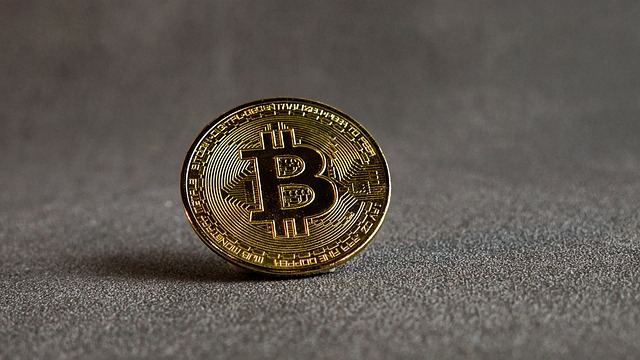Bitcoin Cash (BCH), born from Bitcoin's 2017 hard fork, addresses scalability and centralization issues with faster transactions, lower fees, and enhanced decentralization. Its performance is closely tied to global economic shifts, with investors viewing it as a hedge against inflation and uncertainty during crises or market booms. BCH's resilience is driven by its technology, peer-to-peer network, and limited supply. Regulatory environments significantly impact its market performance, with favorable laws fostering adoption but restrictive measures hindering growth. As global shifts create opportunities for decentralized assets, Bitcoin Cash is positioned for growth, appealing to investors seeking inflation protection and alternative investment options.
“Explore the intricate relationship between global economic shifts and Bitcoin Cash (BCH) market performance. This comprehensive guide delves into BCH’s historical evolution, highlighting its resilience amidst financial turbulences. We examine how external economic factors influence BCH price dynamics and analyze major events that have shaped its trajectory. Additionally, we explore regulatory environments’ role and predict BCH’s future in an ever-changing global economy, offering insights for investors and enthusiasts alike.”
- The Evolution of Bitcoin Cash: A Historical Perspective
- Global Economic Shifts and Cryptocurrency Markets
- Understanding Bitcoin Cash's Uniqueness and Resiliency
- Market Dynamics: How External Factors Influence BCH Price
- Case Studies: Major Economic Events and Their Impact on Bitcoin Cash
- Regulatory Environments and Their Role in Shaping BCH's Trajectory
- The Future of Bitcoin Cash in a Fluctuating Global Economy
The Evolution of Bitcoin Cash: A Historical Perspective

Bitcoin Cash, a significant departure from Bitcoin, emerged in 2017 as a hard fork, or a split, within the Bitcoin community. This event was driven by a desire to address what many saw as Bitcoin’s scalability issues and centralization concerns around mining power. The fork resulted in two separate cryptocurrencies: Bitcoin (BTC) and Bitcoin Cash (BCH).
Historically, Bitcoin Cash has been characterized by its focus on enhancing transaction speed and lowering fees, which have been key selling points for users seeking to facilitate faster and cheaper transactions. This differentiation has been crucial in carving out a unique niche within the cryptocurrency market, especially among those who prioritize the use case of a digital cash system. Over time, Bitcoin Cash has evolved with improvements to its protocol, such as increasing block sizes, aiming to process transactions more efficiently while maintaining decentralization.
Global Economic Shifts and Cryptocurrency Markets

In today’s interconnected global economy, economic shifts can rapidly reverberate through financial markets worldwide, including those of cryptocurrencies like Bitcoin Cash. When traditional financial systems experience turbulence or significant changes in monetary policies, investors often turn to digital assets as a hedge against inflation and economic uncertainty. This has led to notable correlations between macroeconomic events and cryptocurrency market performance, with Bitcoin Cash not being an exception.
Economic shifts can create both opportunities and challenges for Bitcoin Cash. For instance, global recessions or financial crises may drive investment flows into cryptocurrencies, increasing demand and potentially boosting prices. Conversely, stringent regulatory environments or economic booms in traditional markets might lead to a reallocation of capital, affecting the overall sentiment and value of Bitcoin Cash. Understanding these dynamics is crucial for investors and enthusiasts alike, as it shapes the future trajectory of this decentralized digital currency.
Understanding Bitcoin Cash's Uniqueness and Resiliency

Bitcoin Cash, a hard fork of Bitcoin, stands out due to its unique characteristics and resilience in the face of global economic shifts. Unlike its predecessor, BCH offers faster transaction times and lower fees, making it an attractive option for everyday users seeking efficient digital currency transactions. This focus on scalability and user experience has fostered a dedicated community that values its autonomy and decentralized nature.
The resiliency of Bitcoin Cash is evident during market turbulences. Its robust technology, peer-to-peer network, and limited supply act as shield against economic uncertainties. As global economic shifts can lead to volatility in traditional markets, investors often turn to cryptocurrencies like Bitcoin Cash for hedging and diversification purposes. This demand, coupled with its technical strengths, has contributed to BCH’s ability to maintain its position and even gain traction during economic downturns.
Market Dynamics: How External Factors Influence BCH Price

Bitcoin Cash (BCH) price movements are intricately tied to global economic shifts, with external factors playing a significant role in its market dynamics. Macroeconomic indicators like interest rates, inflation, and geopolitical events can trigger substantial price fluctuations. For instance, during periods of economic uncertainty or high inflation, investors often turn to digital currencies as a hedge against traditional asset classes. This shift in investment sentiment can drive up the demand for BCH, potentially leading to price appreciation.
Global financial trends also influence Bitcoin Cash’s market performance through regulatory changes and market sentiment. Regulatory clarity or ambiguity can significantly impact cryptocurrency prices. Positive regulatory developments that support blockchain technology might boost investor confidence, while stringent regulations could lead to temporary price corrections. These external dynamics create a complex environment where BCH’s value is not solely determined by its inherent properties but also by global economic conditions and investor perceptions.
Case Studies: Major Economic Events and Their Impact on Bitcoin Cash

In recent years, Bitcoin Cash (BCH) has weathered numerous global economic shifts, providing valuable insights into its resilience and market performance. One notable case study involves the 2008 Global Financial Crisis. As traditional financial markets plummeted, BCH witnessed a surge in interest as investors sought digital assets as a hedge against economic instability. This event highlighted Bitcoin Cash’s potential as a safe haven asset, driving up its value and fostering community growth.
Another significant example is the 2020 COVID-19 pandemic. Global lockdowns led to heightened uncertainty and a flight to safety among investors, causing traditional stock markets to decline sharply. During this period, Bitcoin Cash experienced a similar upward trend as investors sought alternative stores of value. This case study underscores BCH’s ability to benefit from macroeconomic disruptions, further solidifying its position in the digital asset landscape.
Regulatory Environments and Their Role in Shaping BCH's Trajectory

Regulatory environments play a pivotal role in shaping Bitcoin Cash’s (BCH) market performance and global trajectory. The cryptocurrency space is highly dynamic, and regulatory frameworks vary significantly across countries. Favorable regulations can foster adoption by providing clarity for investors and businesses, potentially driving up demand for BCH. Conversely, stringent or uncertain regulations may hinder its growth, as seen in some jurisdictions where crypto transactions are heavily taxed or outright banned.
These regulatory environments influence investment sentiment, institutional participation, and public perception—key factors that drive market price movements. Countries with progressive crypto laws often attract major players, leading to increased liquidity and volatility for BCH. Conversely, restrictive regulations can stifle innovation and limit the potential for Bitcoin Cash to disrupt traditional financial systems, impacting its long-term viability and appeal.
The Future of Bitcoin Cash in a Fluctuating Global Economy

As global economic shifts continue to shape market dynamics, Bitcoin Cash (BCH) finds itself at a pivotal moment. Its ability to adapt and thrive in a fluctuating economy hinges on several key factors. The decentralized nature of BCH allows it to operate independently from traditional financial institutions, providing a hedge against inflation and currency devaluation. This is particularly appealing in times of economic uncertainty, as investors seek alternative assets that offer protection against the eroding power of fiat currencies.
Looking ahead, Bitcoin Cash’s future rests on its ability to capitalize on these trends. By fostering innovation through upgrades and improvements, BCH can enhance its scalability and security, attracting both tech-savvy users and those seeking stable value storage. Moreover, increasing global adoption and awareness could drive demand, potentially leading to wider acceptance as a legitimate alternative investment. This, in turn, would bolster BCH’s market performance and solidify its place in the ever-evolving digital asset landscape.
In conclusion, the global economic landscape has significantly influenced the market performance of Bitcoin Cash (BCH), highlighting its resilience and unique position within the cryptocurrency market. As economic shifts continue to shape financial systems worldwide, BCH’s ability to navigate these changes offers valuable insights into its future prospects. Understanding the historical evolution of BCH, its distinct features, and the intricate relationship with external factors equips investors and enthusiasts with crucial knowledge for navigating the volatile yet promising global economy. The case studies presented illustrate the tangible impacts of economic events on BCH’s price, further emphasizing the need for a dynamic approach to investment strategies in this rapidly changing domain.



